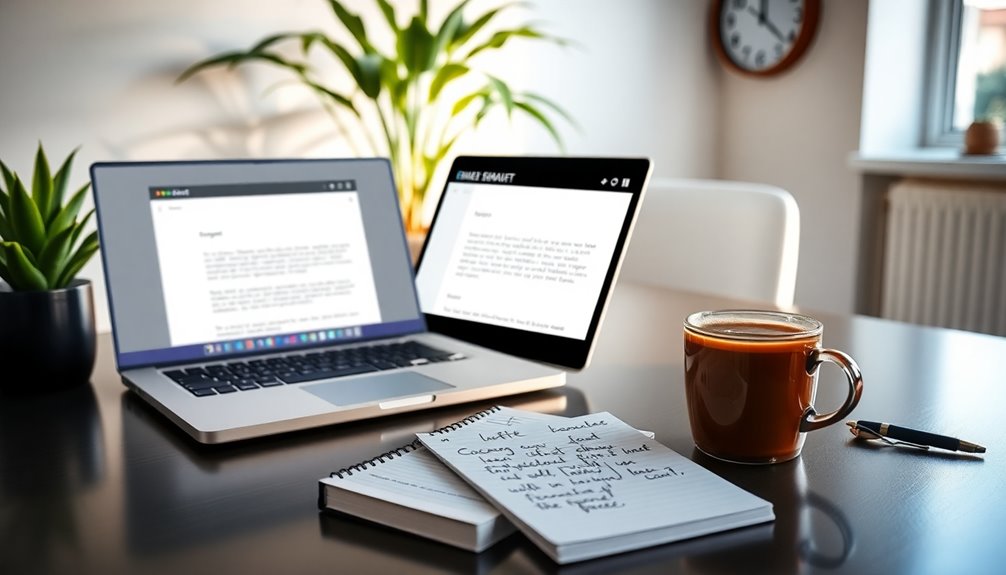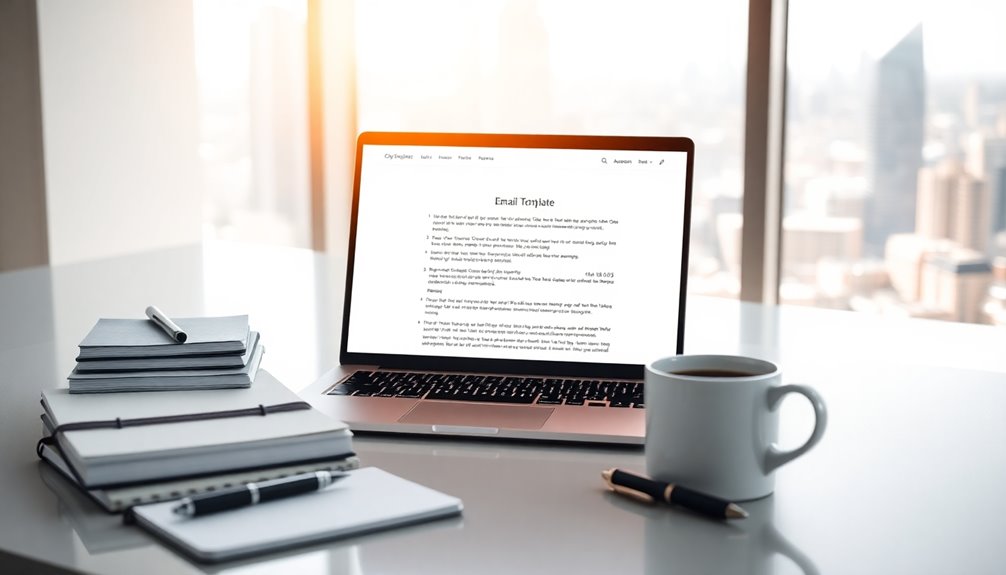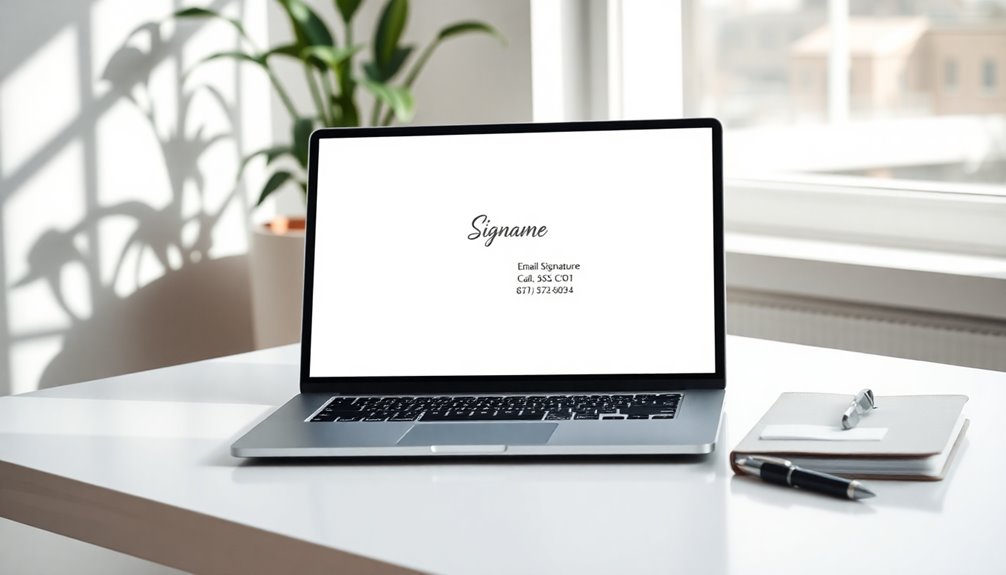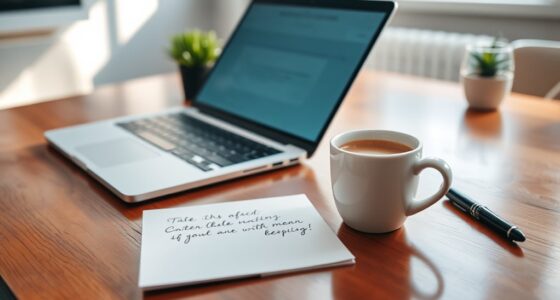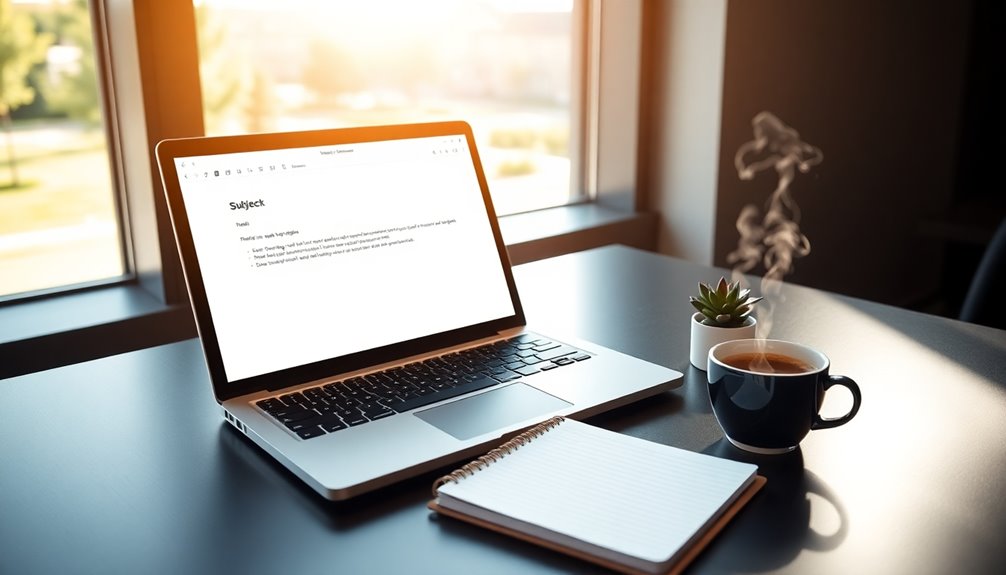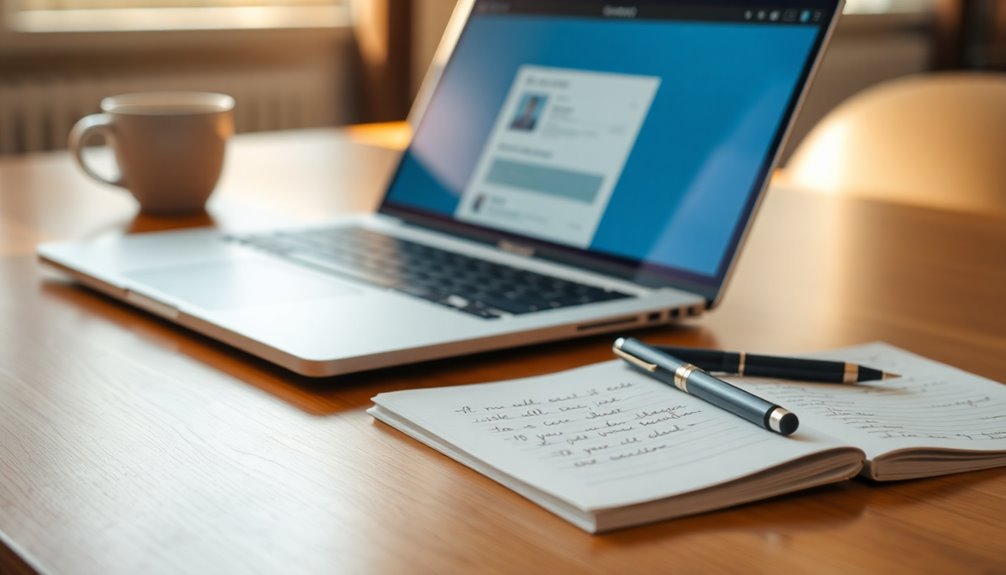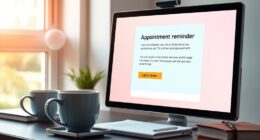To write a follow-up email after your interview that gets a callback, start by sending it within 24-48 hours. Personalize the subject line with something like "Thank You for the Opportunity." In your email, express gratitude for the interview and reference specific topics you discussed. Highlight your enthusiasm for the role and the company. Keep it concise and focused; avoid generic templates. This shows your genuine interest and maintains a positive impression. Stick to one or two follow-up attempts to avoid annoyance. There's more to explore on making your email stand out effectively! When writing interview followup emails, remember to reinforce how your skills align with the company’s needs, referencing key points from the interview. Including a specific detail or insight shared by the interviewer can make your email more memorable. Finally, close with a polite call-to-action, such as expressing your eagerness to contribute and asking about the next steps in the hiring process.
Key Takeaways
- Send the follow-up email within 24-48 hours to show your enthusiasm and commitment.
- Personalize the subject line to reflect the specific interview and express gratitude.
- Reference key discussion points from the interview to demonstrate engagement and interest.
- Keep the email concise while clearly expressing your excitement for the position.
- Proofread the email to ensure professionalism and avoid any grammatical errors.
Introduction
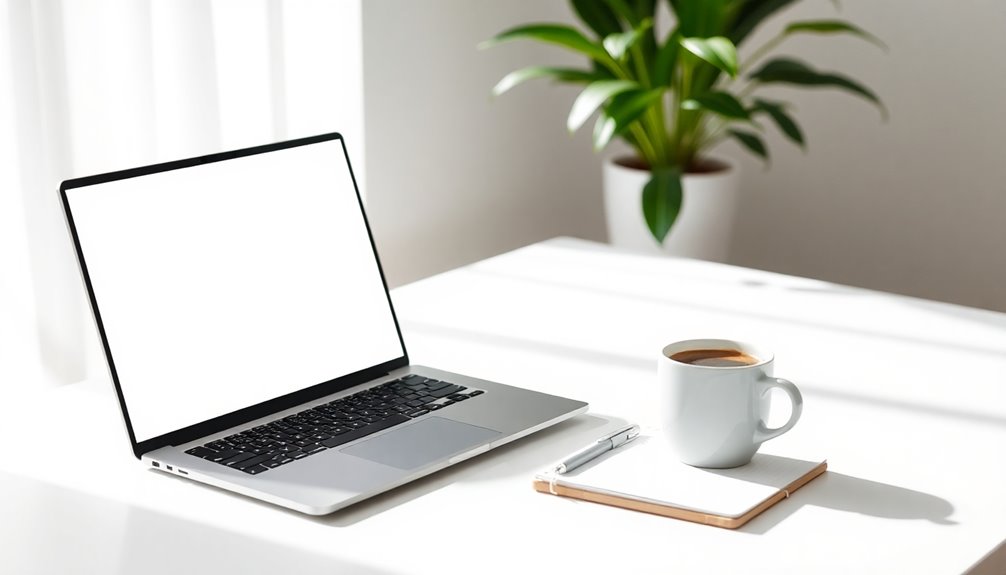
Sending a follow-up email after your interview is a crucial step in the job application process. This thank you email not only reinforces your interest in the position but also helps keep your application top-of-mind for recruiters. In fact, 80% of recruiters appreciate receiving these emails, making them an effective tool in your job search arsenal.
To make your follow-up email stand out, aim to personalize it by referencing specific topics discussed during the interview. This demonstrates your attentiveness and genuine interest in the role. A clear and relevant subject line, like "Thank You for the Interview," sets a professional tone and increases the likelihood that your email will be opened.
Keep your message concise and focused, expressing your enthusiasm for the position without rambling. This approach enhances engagement and shows that you respect the recipient's time. Additionally, consider mentioning how your skills can help address any common frustrations that the team might be facing, demonstrating your proactive mindset.
Lastly, don't forget to proofread your email for grammar and spelling errors. Mistakes can undermine your professionalism and attention to detail, potentially affecting your chances of landing the job.
Demonstrates Your Continued Interest
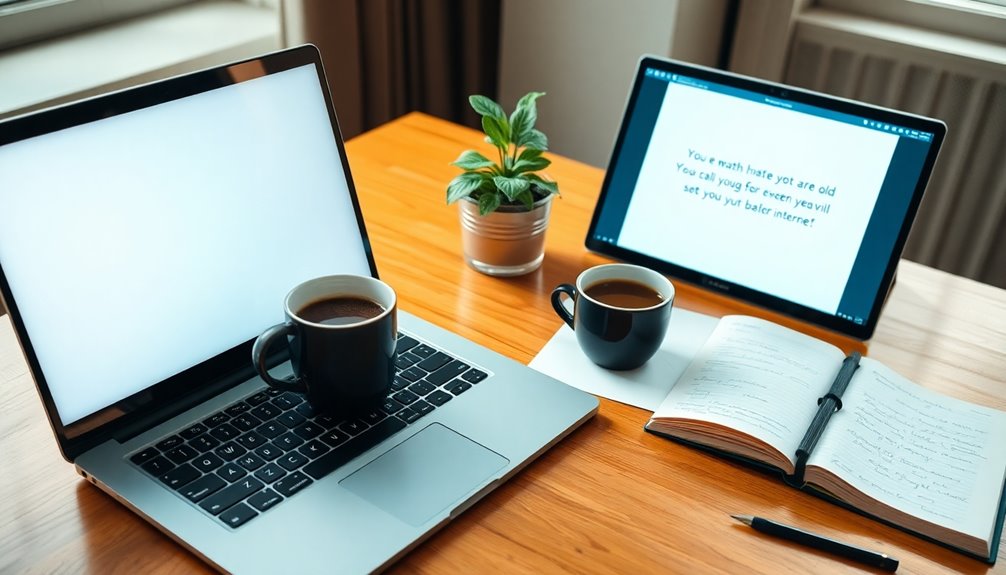
A follow-up email serves as a powerful tool to demonstrate your continued interest in the position. By sending your email within 24-48 hours after the interview, you show your enthusiasm and commitment to the role, reinforcing your desire to be part of the team.
A well-crafted follow-up email that references specific topics discussed during the interview can help you stand out among other candidates, showcasing your attentiveness and engagement.
Research indicates that 80% of recruiters appreciate receiving follow-up emails, signaling that this practice is viewed positively and can influence their perception of your candidacy.
In your follow-up, reiterate your passion for the company and the role, solidifying your desire to contribute to the organization. This not only enhances your chances of receiving a callback but also emphasizes your fit within their culture.
Additionally, including a polite inquiry about the hiring timeline in your follow-up email reflects your continued interest while keeping you informed about the next steps in the hiring process.
Personalized Subject Line
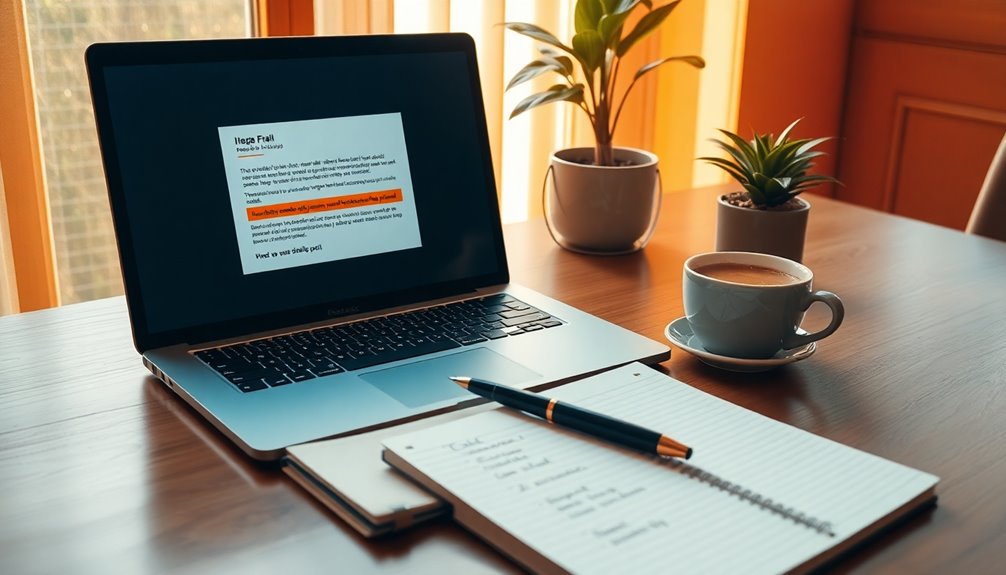
Often, a personalized subject line can make all the difference in whether your follow-up email gets opened. By using a subject line that resonates with your recent interview, you show the recipient that you're genuinely engaged. Phrases like "Thank You for the Opportunity" or "Follow-Up on [Job Title] Interview" create a direct link to your interaction, making your email feel relevant and timely.
To take it a step further, think about incorporating specific details from your conversation. If you discussed a mutual connection or a particular project, weave that into your subject line. This not only personalizes your email but also demonstrates your attentiveness during the interview.
Avoid generic subject lines like "Follow-Up" or "Hello Again." Instead, aim for clarity and relevance to ensure your email stands out among countless others. Keep your subject line concise, ideally under 50 characters, so it displays fully on most email platforms. This way, the recipient can quickly grasp the purpose of your follow-up email.
Crafting Your Follow-Up Message
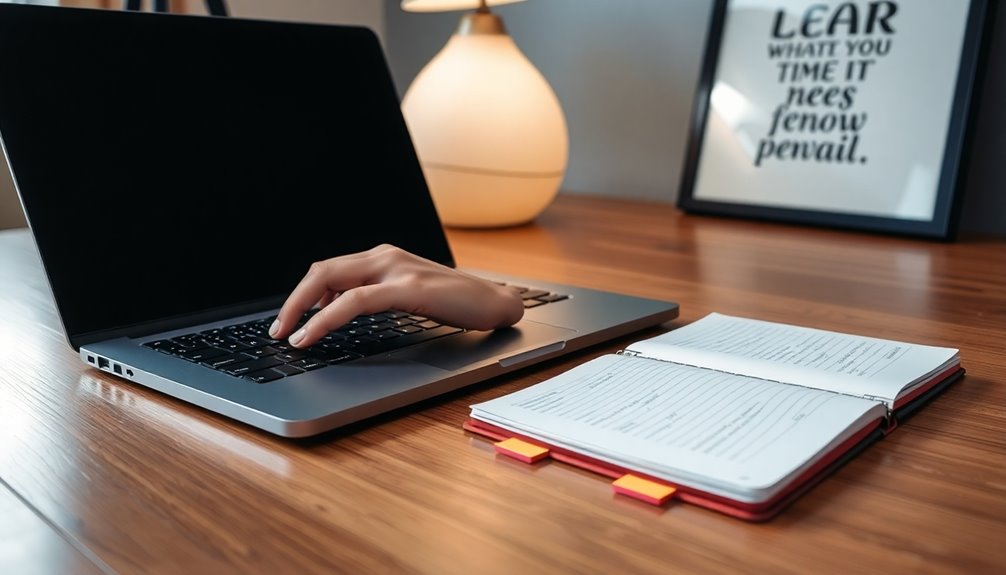
Once you've crafted an engaging subject line, it's time to focus on the body of your follow-up message. Start with a polite greeting, thanking the interviewer for their time and mentioning the specific job title and interview date. This personal touch shows you value the opportunity.
Next, highlight key discussion points from your interview. This not only demonstrates your engagement but also reinforces your suitability for the role.
Be sure to express your enthusiasm for the position and the company, making it clear that you're eager to contribute to their success.
If there's any additional information or materials discussed during the interview, include them in this section. This can strengthen your candidacy and provide the interviewer with what they need to make a decision.
Dos and Don'ts for Follow-Ups
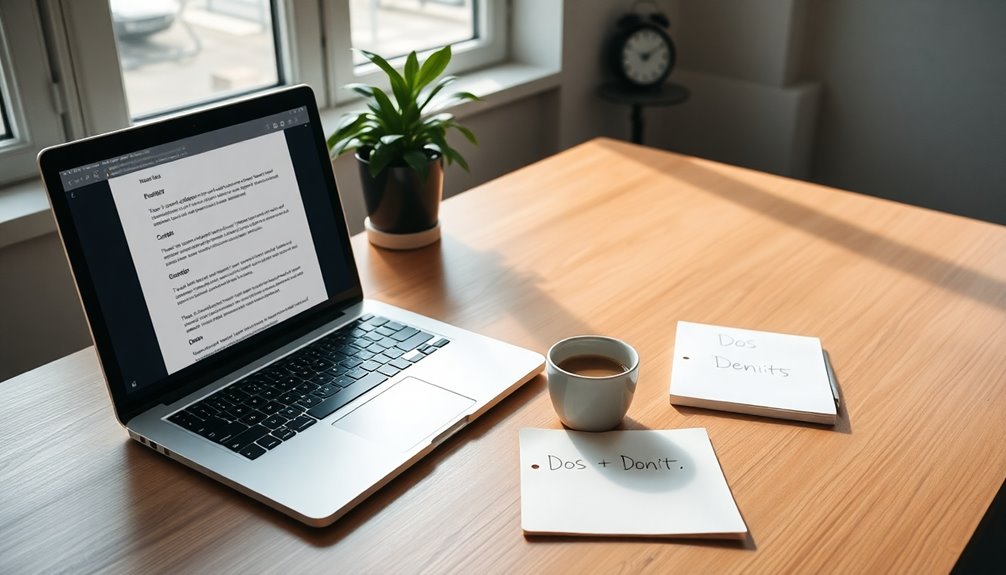
When crafting your follow-up email, it's crucial to remember a few key dos and don'ts that can make a significant difference in how your message is received.
First, do personalize your follow-up email by referencing specific topics discussed during your interview. This not only shows you were engaged but also helps create a memorable connection with the interviewer.
Next, do express gratitude for the opportunity and the time the interviewer invested in you. A simple thank you reinforces your professionalism and leaves a positive impression.
On the flip side, don't send a generic template. Tailor your message to reflect your genuine interest and unique qualifications for the position.
Additionally, don't follow up excessively. Limit your follow-up attempts to one or two; this will prevent you from annoying the recruiter and ensure you maintain a positive impression.
Follow-Up Email Samples
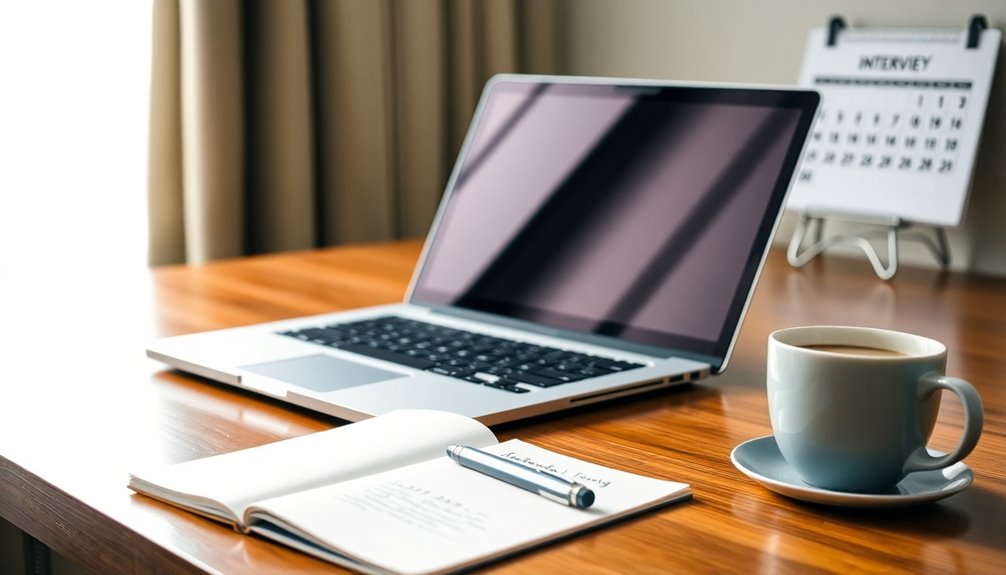
Finally, conclude with a courteous sign-off, such as "Looking forward to hearing from you" or "Thank you once again," followed by your contact information.
This ensures the hiring manager can easily reach you for any follow-up questions.
Pro Tips for Writing Effective Emails
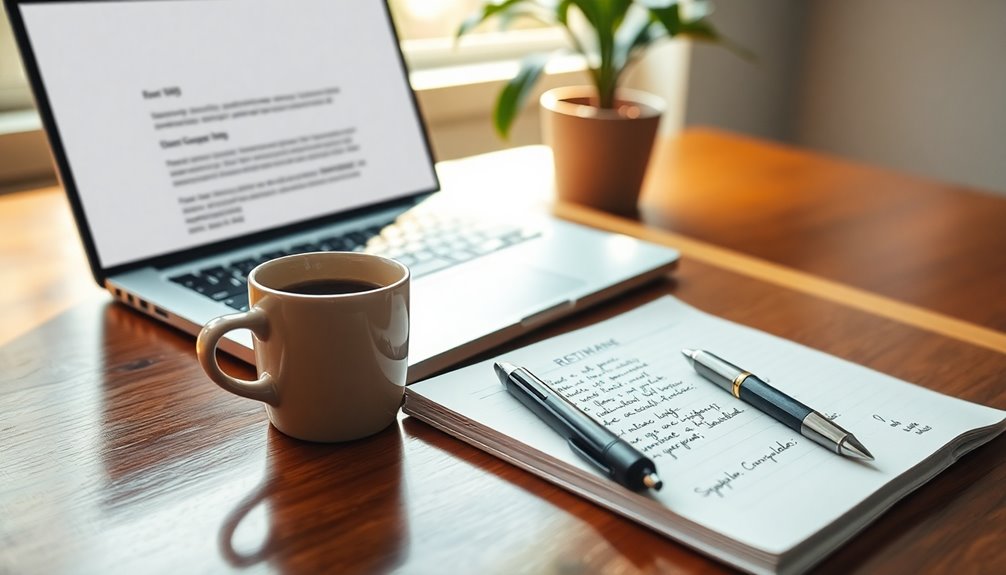
Crafting effective follow-up emails is crucial, as many recruiters frequently appreciate a thoughtful message after an interview.
Begin your follow-up email with a personalized greeting and express gratitude for the opportunity. Research shows that 80% of recruiters value thank-you notes, which can enhance your candidacy. Reference specific topics discussed during the interview to demonstrate your engagement and reinforce your qualifications, making your email stand out among generic follow-ups.
Keep your email concise and focused on reiterating your enthusiasm for the role. Lengthy messages can dilute your key points and risk losing the reader's attention.
Aim to send your follow-up email within 24-48 hours post-interview to maintain a fresh impression and showcase your eagerness for the position. Avoid sending it during weekends or holidays to ensure it gets noticed promptly.
Lastly, always proofread your email before hitting send. Grammatical mistakes can negatively impact the perception of your professionalism and attention to detail.
Final Thoughts
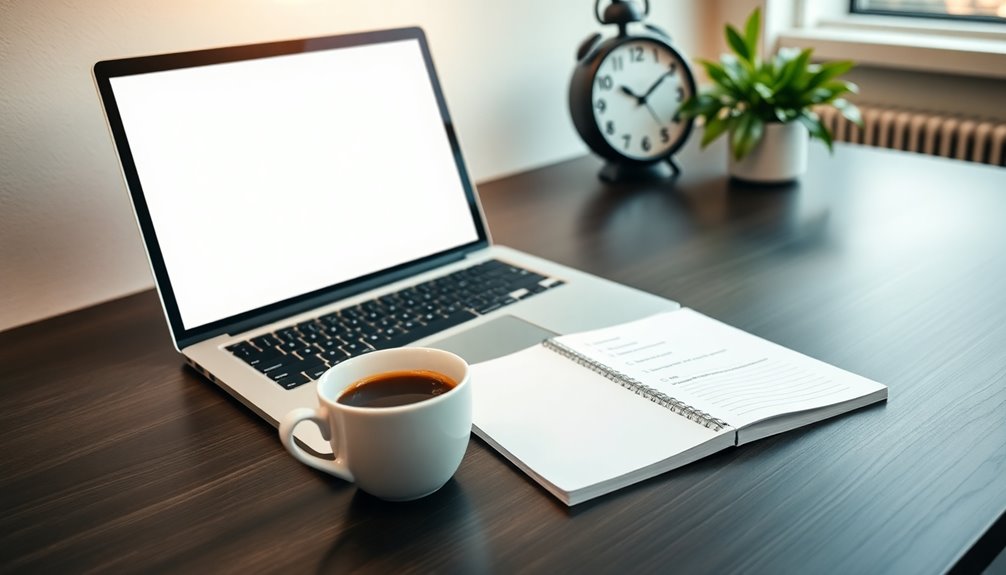
Your follow-up email can be a game-changer in the interview process. Sending your follow-up message within 24-48 hours shows that you're enthusiastic and professional. This timely action can significantly enhance your chances of receiving a callback.
Personalizing your message by referencing specific topics discussed in the interview not only makes a strong impression but also reinforces why you're the right fit for the role.
Keep your email concise and focused. Express gratitude for the opportunity and reiterate your interest in the position. Avoid generic templates; recruiters appreciate personalized notes that reflect genuine interest in the company and its mission.
If you have any additional information that supports your candidacy, don't hesitate to include it.
Frequently Asked Questions
How to Email After Not Hearing Back From an Interview?
If you haven't heard back from an interview, it's a good idea to send a follow-up email after a week.
Thank the interviewer for the opportunity and express your continued interest in the position.
Politely ask for an update on your application status.
Keep it brief and positive, referencing something specific from your conversation to remind them of your discussion.
If you still don't hear back, a gentle second follow-up can be helpful.
How to Follow up After an Interview Phone Call?
After your interview phone call, it's important to follow up quickly.
Send your email within 24-48 hours to keep your candidacy fresh in their minds. Start with a thank-you note, mentioning specific topics you discussed to personalize your message.
Reiterate your interest in the position and ask about the next steps in the hiring process.
Make sure to proofread for clarity and professionalism to leave a lasting impression.
How Long to Wait for Callback After Interview?
After your interview, you should wait about 24-48 hours before sending a follow-up email.
This timeframe helps keep your impression fresh and shows your enthusiasm. If the interviewer mentioned a specific timeline for feedback, stick to that.
Otherwise, give it a week before following up, but don't wait longer than two weeks.
Patience is key; you don't want to seem impatient or miss out on opportunities by waiting too long.
How Do You Send a Polite Follow up Email After an Interview?
To send a polite follow-up email after your interview, start by expressing gratitude for the opportunity.
Mention specific topics you discussed to show your engagement.
Keep your message concise, reiterating your interest in the role.
Ask about the next steps in the hiring process.
Use a clear subject line like "Thank You for the Interview" to make it easily identifiable.
